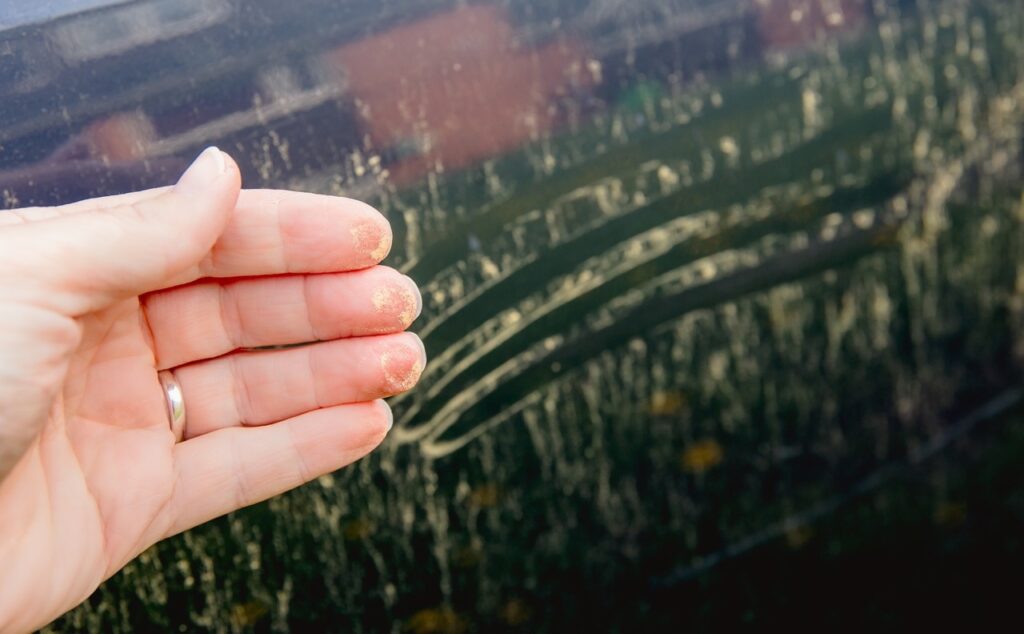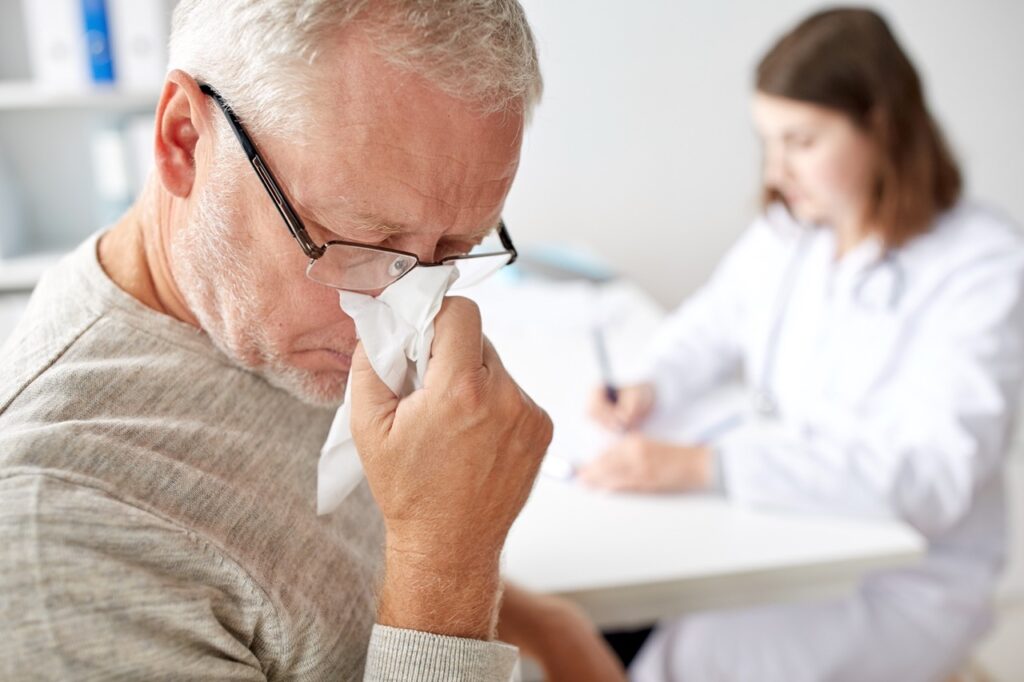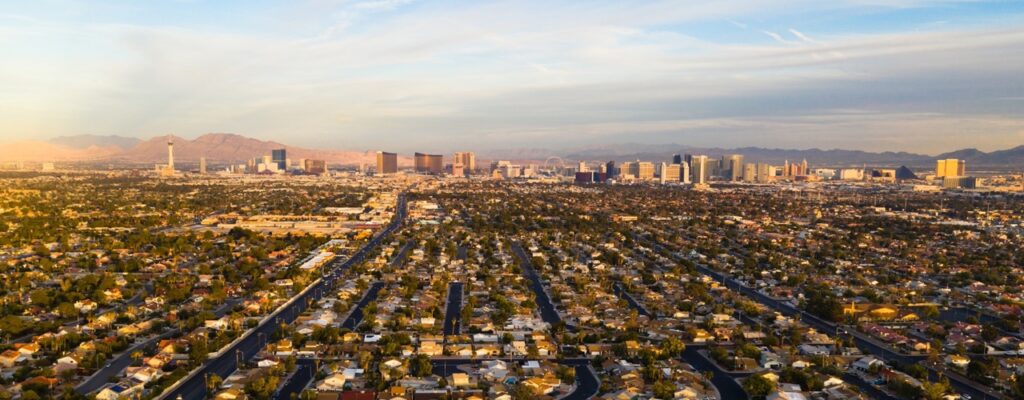January 24, 2024
Battling Spring Allergies in Las Vegas: Understanding and Managing Pollen Allergens

Welcome to spring in Las Vegas, a time marked not just by warmer temperatures and blooming desert landscapes, but also by the onset of allergy season. While the city is renowned for its vibrant nightlife and stunning natural beauty, residents often face the less glamorous challenge of dealing with spring allergies. In this bustling desert metropolis, pollen from grasses, trees, and weeds finds a unique environment to thrive, often leaving allergy sufferers searching for relief.
Let’s delve into the heart of what makes spring in Las Vegas a challenging time for many. This article aims to shed light on the common allergens that mark the season in this region, their impact on our daily lives, and most importantly, the strategies to manage and mitigate these unwelcome springtime guests.
From understanding the allergic symptoms that that come with exposure to the various pollens to exploring both traditional and innovative ways to keep these allergies at bay, this article is your go-to guide for navigating the spring allergy season in Las Vegas. Whether you’re a long-time resident or new to the city, the insights and tips shared here will help you enjoy the beauty of spring in Las Vegas, while keeping those pesky seasonal allergy symptoms in check. Let’s embark on this journey to make your springtime experience in Las Vegas as enjoyable and symptom-free as possible.
Overview of Spring Allergies in Las Vegas
Spring in Las Vegas brings with it not just warmer temperatures and blooming desert vistas, but also a surge in allergenic pollens. This seasonal shift in pollen counts can be challenging for individuals with sensitivities to specific types of pollen commonly found in the area.
Predominant Allergens:
- Grasses: In Las Vegas, grass pollens are a significant source of allergies during spring. Bermuda grass, in particular, is a common grass type in the region, known for its high pollen production.
- Trees: The city’s urban and suburban landscapes are rich with various trees that contribute to the pollen count. Olive trees and mulberry trees are especially notorious for their allergy-inducing pollens. These trees are often chosen for landscaping purposes but unfortunately, they release large amounts of pollen into the air.
- Weeds: Various weed species also contribute to the pollen load in the spring. These can be widespread and often grow in both urban and wild areas around the city.
Impact of Desert Climate:
- The desert climate of Las Vegas plays a significant role in pollen distribution. The region’s low humidity and frequent winds allow pollen grains to stay airborne for extended periods, increasing the likelihood of inhalation by residents.
- Pollen grains in arid environments like Las Vegas are particularly dry and lightweight, making them easily dispersed over large areas, affecting a greater number of people.
Urbanization and Pollen Production:
- Rapid urbanization in Las Vegas has led to an increase in landscaping and planting of ornamental vegetation. While these plants enhance the city’s aesthetic appeal, many of them are high pollen producers.
- The diversity of ornamental plants in urban landscapes means a broader range of allergens, which can complicate allergy diagnoses and management.
Understanding the Allergy Cycle:

- In Las Vegas, the timing of pollen release is typically in sync with the onset of warmer spring temperatures. This means that as the city transitions from the cooler winter months, residents can expect an uptick in pollen production.
- Monitoring local pollen forecasts can help residents anticipate and prepare for the peak allergy season.
The combination of certain types of vegetation typical to Las Vegas, coupled with its unique desert climate, contributes to a distinctive spring allergy season. Understanding the sources of these allergens and how they are affected by local environmental factors is crucial for individuals in managing their allergy symptoms effectively.
Identification of Common Symptoms
Understanding and identifying the common symptoms of spring allergies is crucial for effective management, especially in an allergen-rich environment like Las Vegas. These symptoms can range from mild irritations to more severe physical reactions, significantly impacting daily life. Here’s a detailed look at these symptoms:

- Sneezing: This is often one of the first and most frequent signs of an allergic reaction. Sudden, repetitive sneezing is a body’s reflex reaction to remove nasal irritants like pollen.
- Runny or Stuffy Nose: Allergens like pollen can cause the lining of the nasal passages to swell and produce excess mucus. This leads to nasal congestion (stuffy nose) or a runny nose with clear mucus.
- Itchy and Watery Eyes: Allergic reactions commonly affect the eyes, leading to itching, redness, and watering. This occurs as the body tries to flush out allergens that have come into contact with the eye.
- Throat Irritation: Allergens can cause an itchy or sore throat due to postnasal drip (mucus flowing from the back of the nose down the throat), which can be irritating and trigger coughing.
- Fatigue and Headaches: Prolonged allergic reactions often lead to general fatigue, which can be compounded by poor sleep quality due to nasal congestion. Headaches can also occur, often as a result of sinus pressure from nasal congestion.
- Decreased Concentration: Allergy symptoms can be distracting and uncomfortable, leading to difficulty concentrating, decreased productivity, and overall reduced cognitive function.
- Differentiating from Other Conditions: It’s important to differentiate these symptoms from those of the common cold or other respiratory conditions. Allergy symptoms usually appear immediately after exposure to allergens and last as long as the exposure continues. In contrast, colds are typically more short-lived and may include symptoms like fever and body aches, which are not characteristic of allergies.
These common seasonal allergy triggers and symptoms, particularly when severe, can significantly disrupt daily activities and diminish the quality of life. Recognizing them early is key to seeking timely treatment and implementing strategies to minimize exposure to allergens. Furthermore, understanding the nature of these symptoms helps individuals in Las Vegas prepare and cope better during the high-pollen spring season.
Treatment Options
Effectively managing allergy symptoms often requires a combination of over-the-counter (OTC) remedies and, in some cases, prescription medications or treatments. Here’s a closer look at these options:
Over-the-Counter (OTC) Options:
- Antihistamines: These are the most common OTC option for treating allergy symptoms. They work by blocking histamine, a substance your body makes during an allergic reaction. Antihistamines can help alleviate sneezing, itching, runny nose, and watery eyes.
- Nasal Sprays: OTC nasal sprays can reduce nasal inflammation and congestion. Saline nasal sprays help in clearing out pollen from the nasal passages, while steroid nasal sprays can reduce swelling and mucus in the nasal passageways.
- Eye Drops: Allergy eye drops can relieve itchy, watery eyes. They can contain antihistamines or other ingredients to help with redness and puffiness.
Prescription Medications:
- If OTC medications are not sufficient, an allergist may prescribe stronger antihistamines or nasal sprays. Prescription options might offer longer-lasting relief or be more effective for severe symptoms.
- For skin-related allergy symptoms, prescription topical creams or ointments can be used to alleviate irritation and rashes.
Allergy Shots (Immunotherapy):
- For long-term relief, allergy shots can be an effective treatment. This involves regular injections of small amounts of allergens to help your body gradually build up immunity or tolerance to these substances.
- The process usually takes several months to years but can lead to a significant reduction or even elimination of allergy symptoms. The Cluster Immunotherapy provided by Southern Nevada Allergy can shorten the duration of typical allergy shots, leading to fast relief from seasonal allergies.
- It’s important to note that this treatment is tailored to the individual’s specific allergies, determined through allergy testing.
Consulting an Allergist:

- Consulting with an allergist is crucial for a personalized treatment plan. They can perform or order allergy tests to identify the specific allergens causing your symptoms.
- Based on your allergy profile and the severity of your symptoms, they can recommend the most effective treatment combination. This might include OTC remedies, prescription medications, or immunotherapy.
Monitoring and Adjusting Treatment:
- Allergy treatments may need to be adjusted over time based on their effectiveness and any changes in your symptoms or lifestyle.
- Regular follow-ups with your healthcare provider are essential to ensure that the treatment plan remains effective and to make any necessary adjustments.

While there are various OTC options available for managing allergy symptoms, the most effective treatment plans are often those that are personalized to the individual’s specific allergies and symptom profile. Consulting with an allergist not only helps in identifying these specifics for treating allergies, but also in exploring a broader range of treatment options, including the possibility of long-term solutions like immunotherapy.
Local Environmental Factors
The local climate and environmental conditions in Las Vegas play a significant role in how allergens, particularly pollen, behave and affect individuals with allergies. Understanding these factors is key to anticipating and preparing for allergy seasons effectively. Here’s a detailed look at these local environmental factors:
Dry Weather Conditions:
Las Vegas is characterized by its arid, desert climate. This dryness affects how pollen behaves in the environment. In humid climates, moisture in the air can weigh down pollen, causing it to fall to the ground more quickly. However, in dry climates like Las Vegas, pollen stays lighter and can remain airborne for extended periods.

This prolonged airborne state increases the chances of pollen being inhaled by residents, potentially leading to more pronounced allergic reactions.
Frequent Windy Conditions:
Las Vegas often experiences windy conditions during pollen season, which can significantly impact pollen spread. Wind can carry pollen grains over large distances, far beyond the immediate area of the plants producing them.
Even individuals who live in areas with fewer allergen-producing plants might still experience allergy symptoms due to pollen being wind-borne from other areas.
Urban Green Spaces:
As Las Vegas continues to grow and develop, the creation of urban green spaces, parks, and landscaped areas has increased. While these spaces are beneficial for recreation and aesthetics, they can introduce a variety of plants that are not native to the desert environment.
These introduced species can be significant pollen producers, contributing to the diversity of allergens present in the urban landscape. This diversity can make it more challenging to identify specific allergy triggers and manage symptoms effectively.
Anticipating Allergy Seasons:
By understanding these local environmental factors, residents and healthcare providers in Las Vegas can better anticipate and prepare for allergy seasons.
Monitoring local weather and pollen forecasts can provide valuable information on when allergen levels are likely to be high, allowing individuals to take proactive measures to minimize exposure and manage symptoms.
Adapting to Environmental Changes:
Awareness of the unique environmental factors in Las Vegas also allows for adaptation in terms of landscaping and urban planning. Choosing low-pollen-producing plants for public and private spaces can help reduce the overall pollen burden in the air.
Additionally, public awareness campaigns about the impact of these environmental factors on allergies can help educate residents and visitors, empowering them to take appropriate preventative measures.
In conclusion, the dry, windy climate of Las Vegas, combined with the city’s evolving urban greenery, creates a unique set of challenges for managing spring allergies. A deeper understanding of these environmental factors is essential for both individuals and the community in developing effective strategies to cope with allergy seasons in this distinctive desert landscape.
Conclusion: Taking Control of Your Allergy Symptoms
As we’ve explored, managing spring allergies in Las Vegas involves more than just understanding the environmental factors and symptoms. It requires a proactive approach that includes both lifestyle adjustments and medical interventions. Staying hydrated, planning outdoor activities wisely, and using protective gear are all key steps you can take to minimize your exposure to allergens and alleviate your symptoms.
However, for many, these measures alone may not be enough. This is where the expertise of allergy specialists comes into play. If you’re struggling with allergy symptoms, it’s important to seek professional help. At Southern Nevada Allergy, our team of dedicated and knowledgeable providers is here to assist you. April Encarnacion, PA-C, Victor A. Estrada, M.D., Victor E. Cohen, M.D., and Sandy Yip, M.D., bring a wealth of experience and a compassionate approach to allergy care. They can offer personalized treatment plans that go beyond over-the-counter solutions, providing long-term relief from severe allergies and improving your quality of life.
Don’t let seasonal allergies control your life. Take the first step towards better allergy management by scheduling an appointment with one of our specialists at Southern Nevada Allergy. Whether it’s for a comprehensive evaluation, specific allergy testing, or exploring treatment options like immunotherapy, our team is committed to helping you find relief and enjoy the beautiful spring season in Las Vegas.
Visit Southern Nevada Allergy’s website or call our office today to book your consultation. Take control of your allergies and start living your life to the fullest, even during allergy season!